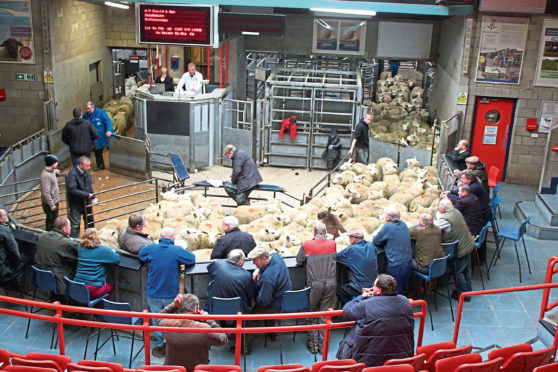Farming and meat trade leaders have united in condemning ‘a hugely damaging U-turn’ by the UK Government.
The U-turn concerns a previously agreed improvement to sheep ageing rules as they apply to TSE rules. Instead of going ahead with the rule change, Defra has now said that implementing a new system during Brexit could have implications for the UK’s future relationship with the EU.
“This sudden change of tack is more than disappointing, it’s baffling,” said NFU Scotland (NFUS) livestock committee chairman Jimmy Ireland.
“We’re facing the bizarre situation where we could bring in sensible rules on this if we were remaining in the EU but, because we’re due to leave in a matter of weeks, we’re stuck with an outdated and costly system.
“The UK Government has led us down the garden path, promising a sensible change to our sheep ageing rules early this year only to renege at the last possible moment.”
A spokesman from the Scottish Association of Meat Wholesalers (SAMW) said: “This is deeply frustrating for everyone involved in the sheep industry, including SAMW member businesses who are stuck with an inadequate system which the Government previously agreed was inadequate. It hardly gives us confidence that Defra is going to get it right going forward.”
The National Sheep Association (NSA) and the NFU in England and Wales, also piled into the debate with NSA chief executive Phil Stocker saying the U-turn raised the question of trust in ministers, while NFU livestock board chairman Richard Findlay said the delay was a “huge setback for the sheep sector”.
According to NFUS, the ageing issue is important to producers because carcases of sheep which are regarded as 12 months or over are subject to splitting, under current TSE rules, which can bring a “significant reduction” in the price paid to farmers or crofters.
The UK Government previously agreed to move away from using teeth as a guide to age to an approach linked to traceability systems, under which lambs going to slaughter prior to June 30 would be deemed to be under 12 months, while any old season hoggs marketed after June 30 would be regarded as older. A Defra spokeswoman said: “We are aware of the concerns from the sheep sector and the need to make progress on this matter.”
